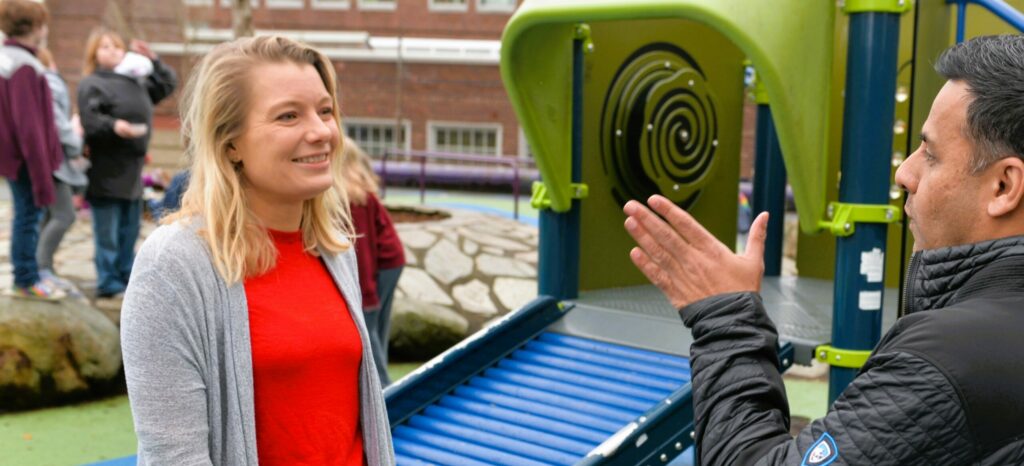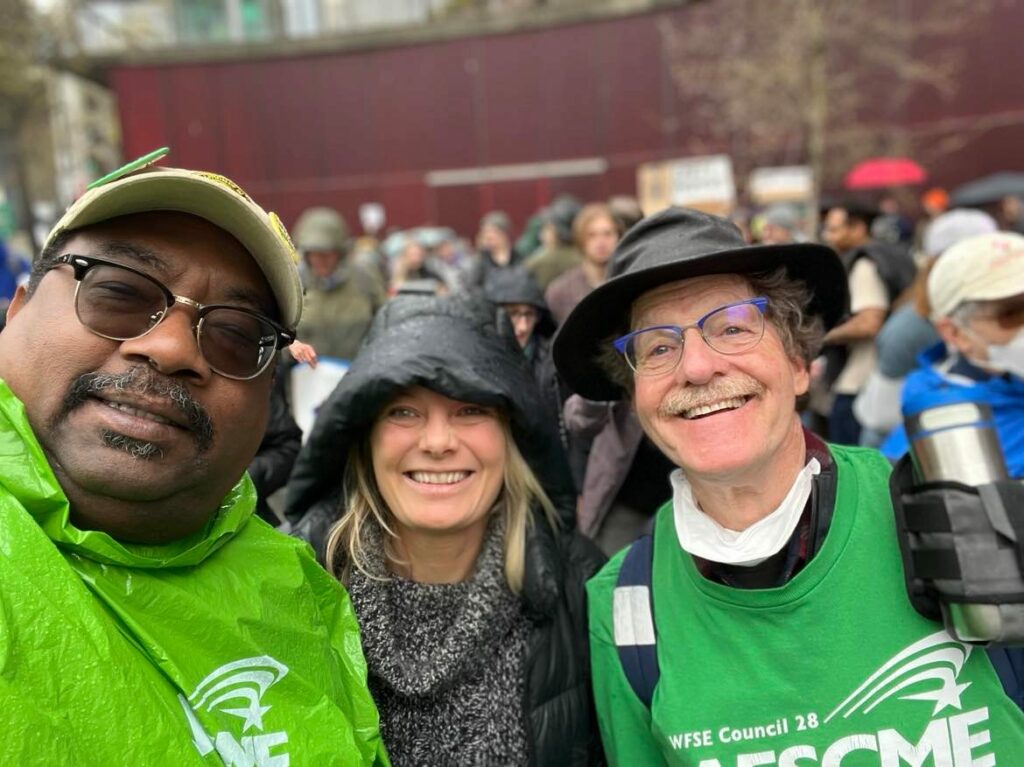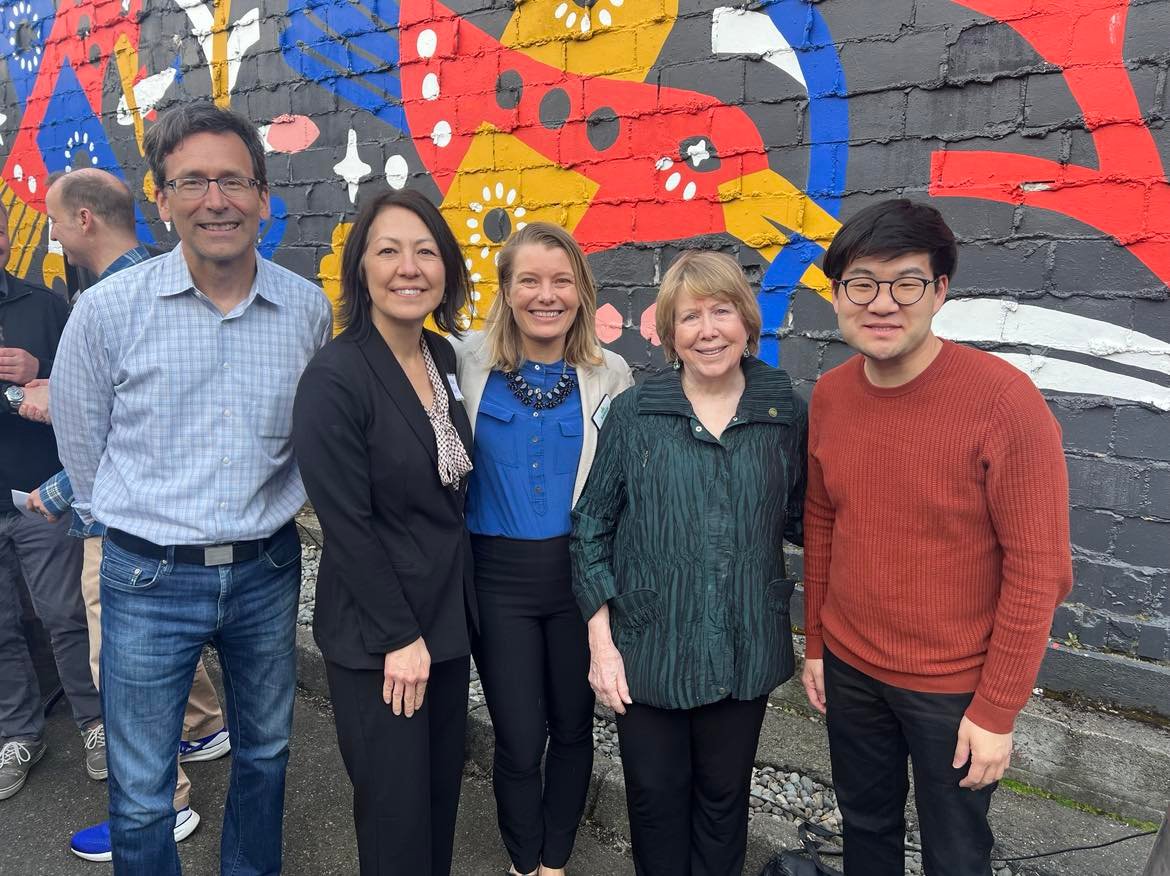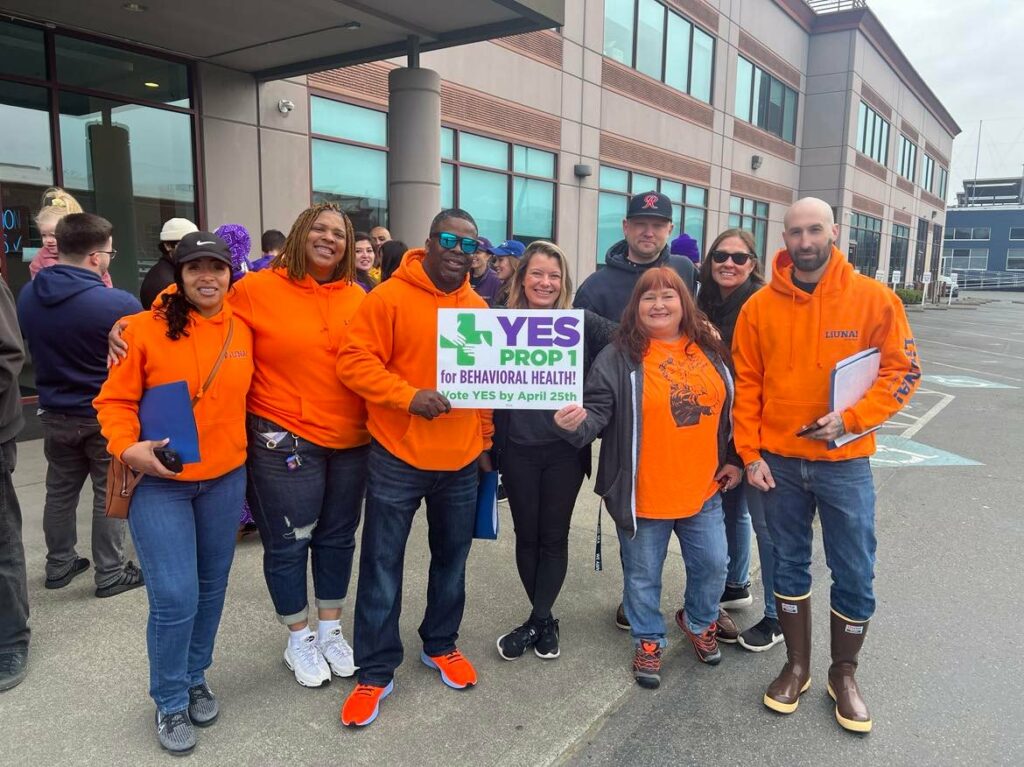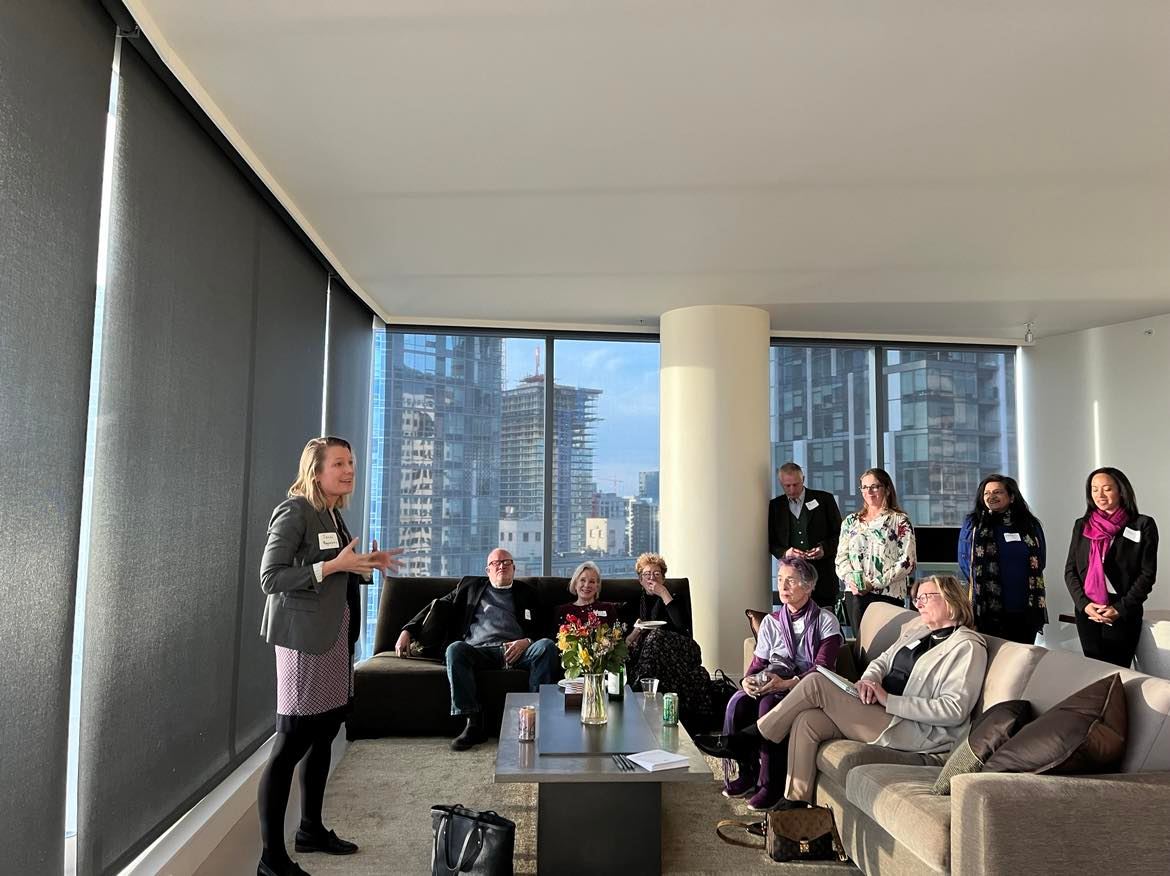I am a proud longtime transit rider and advocate. I started riding on Metro buses as a teenager from Queen Anne to my high school in the Central District. Today, I ride on Metro buses with my son from Ballard to his daycare and my job in downtown Seattle. To me—like so many King County residents—the bus has always meant mobility and freedom—to get to school, to work, to local businesses, and to the great destinations our County has to offer. While serving as President of the UW Graduate and Professional Student Senate at UW Law, I was concerned that the UW’s U-Pass was threatened because of declining revenue. That’s why I worked with fellow student leaders to advocate for a universal U-pass to save the program. Most recently, I helped to mobilize community members and Democrats to urge their policymakers to support local and state public transit investments.

Presenting the GPSS/ASUW proposal universal U-Pass proposal to the Board of Regents.
The King County Council has a critical responsibility to deliver accessible public transit to all in our region. Unfortunately, Metro Transit service has declined since the pandemic and ridership has been cut in half and have not yet been restored. As a result, transit riders are saddled with delays, canceled routes, and reduced service. The lack of reliable transit service disproportionately impacts communities of color, people with disabilities, youth, the housing insecure, and those with fixed incomes. We must elevate community voices and particularly those disproportionately impacted by the lack of access to transit options to further mobility access and justice. As your County Councilmember, I will work with our communities to boost transit service and create a public transit system that delivers fast, frequent, convenient, and reliable transit to all in the region. Together we can deliver on the following priorities:
- Build a coalition to pass a countywide dedicated transit revenue package to fund a King County Transportation Benefit District to restore and increase service, fully implement an updated Metro Connects, hire and retain operators, and transition to zero emission buses. This measure should deliver faster, more frequent, reliable, safe, and accessible bus service that connects every community member, protects pedestrian and bike safety, and offers incentives and supports to build the workforce of bus operators. Work with partners in the labor community to direct funding to hire and retain operators, mechanics, and the other staff who make Metro possible.
- Deliver light rail to Ballard, equitable transit-oriented development, and electric car infrastructure. As our region is growing rapidly, work to ensure that light rail to Ballard is delivered on time, connects to pedestrian centers, bus routes, and fully utilizes opportunities to unlock transit-oriented development in a way that creates additional housing and connects our communities. Implement and expand requirements for charging stations for electric vehicles for new development in unincorporated and across King County.
- Provide free transit for those who are cost burdened and require and incentivize more employers to fully subsidize annual transit passes. King County should build and expand the subsidized annual pass program to include a free transit pass program for riders with disabilities, seniors, veterans, and our neighbors that cannot afford to ride.
- Restorative enforcement policies. King County has taken big steps to move away from punitive and towards restorative fare enforcement, but we must continue to work with Sound Transit and other agencies to move towards just and equitable fare enforcement.

